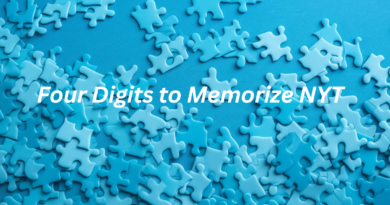The Andrew Huberman Drama Controversy: Navigating the Intersection of His Amazing Personal Life and Public Persona
Introduction
Stanford University’s tenured professor of neurobiology and ophthalmology Andrew Huberman is in the middle of a controversy after an insightful essay in the Intelligencer. According to the article, Huberman had several extramarital romances with his former partner, which caused a lot of people to take offense. Discussions concerning Huberman’s behavior and how society responds to famous persons’ private lives have been sparked by this incident. The distinctions between professional accomplishments and personal transgressions are frequently blurred in the current digital era, which sparks intense public scrutiny and discussion.
Who is Andrew Huberman?
Respected scientist and professor Andrew Huberman is well-known for his important contributions to the disciplines of neurobiology and ophthalmology. huberman drama has conducted research at Stanford University on neural regeneration, brain plasticity, and the processes underlying brain function. He is well-known in his area thanks to the numerous publications and accolades received for his work. In addition, Huberman has amassed a sizable fan base on social media thanks to his interesting and instructive posts, in which he offers insights on human behavior and neurology.
The Article in Intelligencer of Huberman Drama
The scandal began with an article in the Intelligencer that provided a thorough and unsettling account of huberman drama personal life. It became out that huberman drama had several extramarital encounters while living with his ex-partner. The goal of disclosing these facts was to provide the public a complete picture of the scientist’s life, but it also sparked a firestorm of criticism and discussion about the morality of tying one’s personal actions to one’s reputation in the workplace.
Details of the Allegations
The story claims that huberman drama had many months’ worth of extramarital relationships with numerous different women at the same time. The specific details of these acts provide a timeline that implies a pattern of conduct rather than a collection of random occurrences. Many people who respected huberman drama for his career achievements were stunned by the discoveries, which caused many to reassess his public image.
Public Reaction and Backlash
The public’s immediate response was one of disappointment and disbelief. Social media was a flurry of debate, criticism, and support for huberman drama. While some voiced their shock and indignation, others emphasized the need to distinguish between personal shortcomings and professional virtues and urged for a more balanced view of the circumstances. The quick and strong pushback demonstrated the influence and scope of digital media on public opinion.
The Nature of Modern Digital Society
Scandals may spread quickly in today’s digital world, frequently surpassing the ability for a considered and methodical reaction. Controversies gain momentum from social media and may disseminate swiftly and extensively. This behavior frequently results in a mob mentality, when people criticize one another without fully comprehending the situation or the specifics. An excellent illustration of how easily well-known people may lose favor in the digital era is the Huberman affair.
Idealization and Devaluation
The psychological processes of idealization and devaluation are important in shaping our perceptions of public personalities. Idealization is the process of giving someone flawless attributes while frequently neglecting their imperfections. Upon the inevitable revelation of these defects, devaluation sets in, and the person is scrutinized severely. Several celebrity scandals illustrate this cycle, with the public’s initial admiration giving way to disdain and disillusionment with the revelation of personal flaws.
The Trap of Uncritical Judgment
People frequently make the mistake of making snap judgments about people based just on their personal life, particularly when it comes to well-known individuals. This assessment may cast doubt on contributions and achievements in the workplace, creating a skewed perception of the whole effect of the person. For others,Huberman drama considerable contributions to science and education have been eclipsed by the attention on his personal transgressions.
Huberman’s Professional Work
Andrew Huberman drama professional contribution is still valued and significant, despite his personal disgrace. His studies on brain plasticity and neural regeneration have shed light on how the brain develops and repairs itself. His teaching initiatives, notably through social media, have made complicated scientific topics accessible to a larger audience, generating better knowledge and interest in neuroscience.
Critique of Huberman’s Content
It’s critical to discern between fair criticism of Huberman drama scholarly contributions and insults originating from his personal life. For science to grow, constructive criticism of his research methods, interpretations, or public content is necessary. But equating these criticisms with his personal conduct may result in inaccurate and biased evaluations of his contributions to his career.
Cancel Culture and Online Hate
Cancel culture, a prominent phenomena in the digital era, includes the public removing support from someone due to perceived or actual violations. The people involved may suffer serious repercussions as a result, both personally and professionally. Online hatred can be extremely harmful, leading to an atmosphere where critical discourse is overwhelmed by animosity and condemnation. This hate is typically driven by cancel culture.
Personal Life vs. Professional Achievements
For many prominent personalities, maintaining a balance between their personal lives and their professional accomplishments may be difficult. Although an individual’s personal conduct can influence public opinion, it shouldn’t entirely eclipse their professional accomplishments. When it comes to Andrew Huberman, it’s important to acknowledge the significance of his scholarly contributions while also taking his personal activities into account.
Lessons from the Huberman Scandal
Public personalities and society at large can learn various lessons from the Huberman controversy. It emphasizes how crucial it is for prominent individuals to uphold their integrity in both their personal and professional lives. It emphasizes for society the importance of discernment and critical thought while assessing the deeds of others. It also advocates for a more sympathetic and fair attitude to assessment, acknowledging that everyone has weaknesses and that these shortcomings do not always nullify professional successes.
Conclusion
In conclusion, a lot may be learned about how private life and public identity merge in the digital age from the debate surrounding Andrew Huberman. Even if huberman drama personal behavior has come under heavy fire, it’s critical to distinguish it from his contributions to the workplace. This controversy acts as a mirror, reflecting our propensity to elevate public personalities to an ideal before passing judgment on them harshly. Going forward, we ought to aim for a more sympathetic and nuanced response to these kinds of circumstances, acknowledging the complexity of human nature as well as the importance of career accomplishments.
FAQs
1. How has Andrew Huberman responded to the allegations?
Andrew Huberman drama has not publicly addressed the specific allegations in detail, focusing instead on continuing his professional work and maintaining a low profile amid the controversy.
2. What has been the impact on his career?
The controversy has undoubtedly affected huberman drama public image, but the full impact on his career remains to be seen. He continues to work at Stanford and engage with his audience through educational content.
3. Why do people react so strongly to scandals involving public figures?
People often idealize public figures, projecting onto them qualities of perfection. When these figures are revealed to have flaws, the reaction can be intense disappointment and anger, leading to strong public backlash.
4. Can a person’s personal life invalidate their professional contributions?
While personal actions can influence public perception, they do not necessarily invalidate professional contributions. It’s important to evaluate professional work on its own merits, separate from personal behavior.




